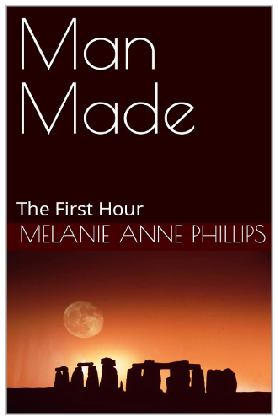|
For Story Structure |
|
For Story Development |
|
|

|
|

|
Novice Writers |
Creative Writing |


Let's begin with the familiar.
We all know that writing is not just about assembling words, but also about assembling ideas. When we actually sit down to write, we may have our ideas all worked out in advance or we may have no idea what we want to say -
Some of us must labor on projects that we hate, but which have been assigned to us. Others may simply be in love with the notion of being a writer, but haven't a thing to say. Regardless of why we are writing, we all share the desire to create an expression that has meaning to our audience.
And just who is that audience? It might be only ourselves. Often I have written material as a means of getting something off my chest, out of my thoughts, or perhaps just to get a grip on nebulous feelings or issues by forcing myself to put them into concrete terms.
Some of what I write this way has actually turned out to be saleable as essays on personal growth or insights into meaningful emotional experiences. But, most of what I have written for my audience of one remains with me. Perhaps it is too personal to share, or just too personal to have meaning to anyone else.
When I write for myself, it is seldom a story. More often than not, it isn't even a tale. Rather, it is a snippet of my real experiences, or a flight of fancy, such as the words "red ground rover." What does this mean? I have no idea. But I do know how it feels to me.
In fact, popping out a few nonsense but passionate words is a trick I often use to get a story going. I'll write something like the above almost randomly. Then I'll ask myself, "Is the ground red with some one or something roving over it, or the whole thing a nick name for a bird dog or a mail carrier in the outback?
Blurting out something that has no conscious intent behind it can be a useful trick in overcoming writer's block. It seems that writer's block most often occurs when we are intentionally trying to determine what we want to talk about. But, when we just put something forth and then try to figure out what it might mean, a myriad of possibilities suggest themselves.
If you like, take a moment and try it. Just jot down a few nonsense words to create a phrase. Then, consider what they might mean. Rather than attempting to create, you are now in analysis mode, the inverse emotional state of trying to produce something out of nothing. You'll probably be surprised at how many interpretations of your phrase readily come to mind.
Imagine, then, if you were to take one of those interpretations and build on it. In my example, let me pick the first interpretation -
But what to do next? How about another nonsense phrase: "minion onion manner house." What in the world does that mean? Let's tie it in to the first phrase. Suppose there is some underling (minion) who is hunting for wild onions on Mars (onions being so suited to the nutrients in the soil that they grow wild in isolated patches). The underling works at the Manner House of a wealthy Martian frontier settler, but is known as Red Ground Rover because of his free-
Now, these phrases weren't planned as examples for this book. To be fair, I just blurted them out as I suggest you do. Just as we see pictures in ink blots, animals in the clouds, and mythic figures in the constellations, we impose our desire for patterns even on the meaningless. And in so doing, we often find unexpected inspiration.
Even if none of our ideas are suited to what we are attempting to write, we have successfully dislodged our minds from the vicious cycle of trying to figure out what to say. And, returning to the specific task of our story, we are often surprised to find that writer's block has vanished while we were distracted.
Now you may have noticed that in the example we just explored, there are elements of Character, Plot, Theme, and Genre. The Genre appears to be a variety of Science fiction. The Theme would seem to revolve around the class system on a frontier Mars and the implications of interjecting one natural ecosystem willy nilly into another. The plot involves an individual out to better his lot by working outside the system, and whatever difficulties that may create for him. And, we have at least two characters already suggested -
This is a good illustration of the fact that when we seek to impose patterns on our world (real or imagined) we actually project the image of our mind's operating system on what we consider. Characters form themselves as avatars of our motivations. Theme intrudes as representations of our values. Plot outlines the problem solving mechanisms we employ. And Genre describes the overall experience, from setting to style.
We cannot help but project these aspects of ourselves on our work. The key to inspiration is to develop the ability to see the patterns that we have subliminally put there. Almost as important is knowing when to be spontaneous and when to analyze the results, looking for the beginnings of a structure.
 If you are a structuralist writer, you'd probably prefer to have the whole story worked out either on paper (or at least in your head) before you ever sat down to write. If you are an inspirationist writer, you probably wouldn't have a clue what you were going to write when you began. You'd sit down, bop around your material and eventually find your story somewhere in the process, as you wrote. The final story would be worked out through multiple drafts. Most writer’s fall somewhere in between these two extremes. An idea pops into our head for a clever bit of action, an interesting line of dialog, or a topic we'd like to explore. Maybe it comes from something we are experiencing, have experienced, see on television, read in the newspaper, or perhaps it just pops up into our conscious mind unbidden.
If you are a structuralist writer, you'd probably prefer to have the whole story worked out either on paper (or at least in your head) before you ever sat down to write. If you are an inspirationist writer, you probably wouldn't have a clue what you were going to write when you began. You'd sit down, bop around your material and eventually find your story somewhere in the process, as you wrote. The final story would be worked out through multiple drafts. Most writer’s fall somewhere in between these two extremes. An idea pops into our head for a clever bit of action, an interesting line of dialog, or a topic we'd like to explore. Maybe it comes from something we are experiencing, have experienced, see on television, read in the newspaper, or perhaps it just pops up into our conscious mind unbidden.
Almost immediately a number of other associated ideas often come to mind. If there are enough of them, a writer begins to think, "story." We then ponder the ideas with purpose, seeing where they will lead and what else we might dig up and add to the mix.
Eventually we have gathered enough material to satisfy our own personal assessment that we actually have the beginnings of a story and are ready to begin serious work on it. Then, structuralists set about working out the details and inspirationists set about finding the details as they go along.
Yet there is a problem for both kinds of writers. What holds all these ideas together is a common subject matter. But just because they all deal with the same issues does not mean they all belong in the same store.
It is common for authors to become frustrated trying to make all the pieces fit, when in fact it may be impossible for them to all fit. Perhaps several different combinations can be worked out that gather most of the material into the semblance of a structure. But odds are there will be a significant amount of the material that gets left out no matter how you try to include it. Even if each potential structure leaves out a different part and incorporates material left out in another potential structure, there is no single structure that includes all.
Like trying to pick up chicken fat on a plate with the flat side of a fork, we chase a structure all around our subject matter until we run ourselves ragged. Then we stare at the paper or the screen, realizing we've tried every combination we can think of and nothing works. It is this dilemma we call writer's block.
It is much easier when we realize that stories are not life; they are about life. In the real world, we group our experiences together by subject matter, not by the underlying structure that describes it. For example, we are more likely to see the issues regarding the disciplining of our children as being lumped into one category of consideration whereas getting chewed out by our boss is another.
In truth, if our child tells a lie, it is not necessarily the same issue at all as when he or she doesn't do the assigned homework. But, not doing homework may have a much closer structural connection to our getting in trouble with our boss because we failed to file all of the expense reports he requested.
We can avoid writer's block. We can recognize that the material we create at the beginning of our efforts is not the story itself, but merely the inspiration for the story. Then we can stop chasing our mental tails and pick the structure that is most acceptable rather than cease writing until we can find the impossible structure that would pull in all the material.
Based on this understanding, it is not hard to see that we come to Characters, Plot, Theme, and Genre not on a structural basis but on a subject matter basis as well. And, there is nothing wrong with that. As was said in the beginning of this article, we don't write because of the desire for a perfect structure. We write because we are passionate about our subject matter. Yet sooner or later, the structure needs to be there to support our passions.
